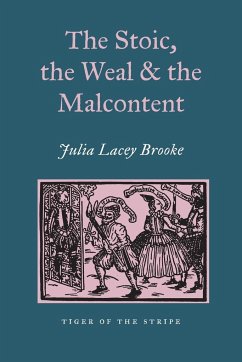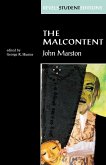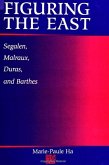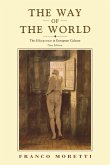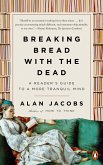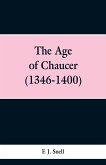Enter the Malcontent... a misfit, an outcast, a 'strayer from the drove', one who laughs at the follies of others from a distance, like Jacques, or who snarls and rails acerbically like Thersites or Timon. Sometimes, like Iago, he has murder in his heart. He might be an alienated intellectual, like Bosola or Flamineo, with an education he cannot use, or a cynical adventurer like Bussy, or a revenger, like Vindice, out to right wrongs; a bastard like Edmund; a Jew like Barabas; an outcast, a social climber, a man with a deformity, a man passed over for office, a professional clown with ambitions, a professional soldier with a grudge, a Prince with an impossible mission, even a usurping king determined to 'prove a villain'... The Malcontent comes in various garbs and guises, sometimes glowering and dressed in black, and sometimes not. But his kind is legion, his intelligence rare, and he figures on the English stage at a uniquely innovative point in its history. The Jacobean stage Malcontent had his immediate antecedents in real life. He also had a dramatic ancestry in the medieval Vice and the Fool. His anarchic hey-day began in the late 1580s and was effectively over by the mid 1620s, but this brief period produced some of the most influential dramatists the Anglophone world has known, stage-writers of brilliance who were engaged in re-working Roman and Greek Classicism, and incorporating and adapting English medieval staples and histories in modern works which revolutionised stage business and stage language. By the time a play called The Malcontent by John Marston appeared in 1604, it was satirising a familiar phenomenon: not only of a stage figure, but of a whole tranche of plays and theatre-writing distinctly malcontented in tone and matter. Written and performed in a time of new intellectual inquiry and a spirit of scepticism regarding the old fixtures of Man's place in the World and the political and religious structures that underpinned it - a time of social flux, of discovery of new worlds, of war, spying, bitter religious faction, and political and economic uncertainty - these works were presenting a diverse public audience with the exciting and possibly terrifying spectacle of this fixture's actual fragility, and the capacity of Man to challenge his destiny. The author's remarkably perceptive The Stoic, the Weal and the Malcontent sheds new light on the the development and relevance of the Malcontent in Elizabethan and Jacobean drama. Julia Lacey Brooke read English Literature and Renaissance History at the University of East Anglia, later taking an MLitt at the University of Birmingham's Shakespeare Institute in Stratford-upon-Avon. Now based in rural Tuscany, she is a freelance editor, teacher and lecturer, and writes satirical fiction.
Hinweis: Dieser Artikel kann nur an eine deutsche Lieferadresse ausgeliefert werden.
Hinweis: Dieser Artikel kann nur an eine deutsche Lieferadresse ausgeliefert werden.

